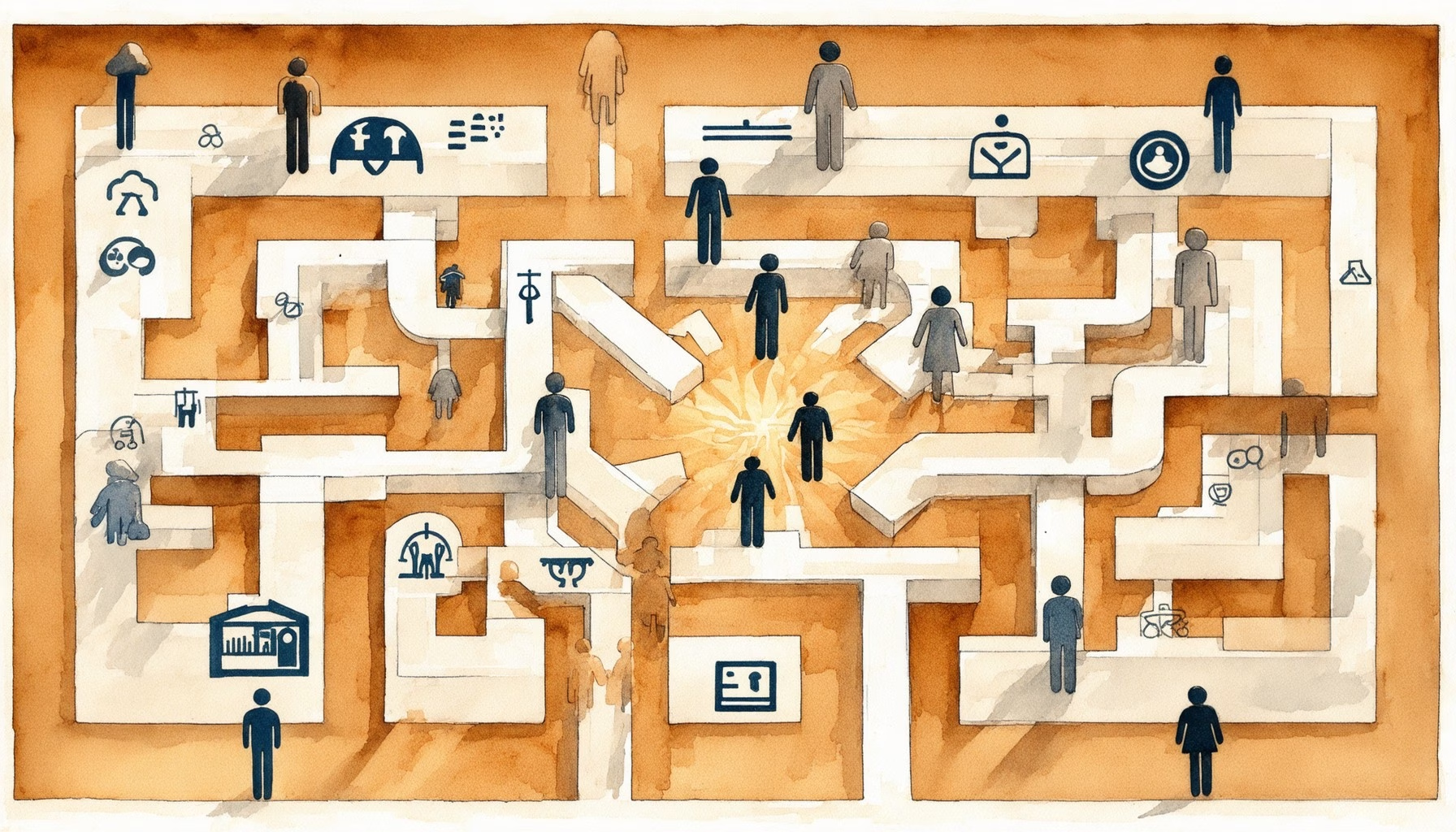Key Takeaways
- Access to free legal services for family court is crucial for low-income families to ensure fair representation.
- Individuals unable to afford an attorney are classified as “indigent,” and may receive pro bono legal assistance.
- Utilizing local legal aid organizations can provide essential support for navigating complex family law issues.
- Free consultations and representation are available through resources like the Legal Services Corporation.
- Understanding eligibility criteria for free attorney services can empower families to seek the help they need.
- Online directories and community resources are valuable tools for locating free family lawyers and legal aid.
- Early intervention through free legal aid can prevent prolonged court battles and reduce emotional stress.
Navigating the complexities of family court can be a daunting experience, especially for low-income families who may not have access to legal representation. In this article, we will explore the essential insights surrounding free legal services for family court, providing valuable information on how to obtain the support you need. We will address critical questions such as what to call a person who cannot afford an attorney and how to navigate family court without a lawyer. Additionally, we will delve into the various resources available, including free legal advice hotlines and options for free attorney services tailored for families. By understanding the landscape of legal assistance free to low-income families, you can empower yourself with the knowledge needed to access free family lawyers and secure the legal help necessary for your case. Join us as we uncover the pathways to free legal aid and the support available for those in need.
What do you call a person who cannot afford an attorney?
A person who cannot afford an attorney is often referred to as “indigent.” In legal contexts, being indigent means that an individual has insufficient financial resources to hire private legal representation. When a court determines that someone is indigent, they may appoint a private lawyer funded by county resources or assign a public defender to represent the individual.
The right to legal representation for indigent individuals is rooted in the Sixth Amendment of the U.S. Constitution, which guarantees the right to counsel in criminal cases. According to the American Bar Association, public defenders are essential in ensuring that those who cannot afford an attorney still receive fair legal representation.
Additionally, various programs and resources exist to assist indigent individuals in accessing legal services. For example, organizations like Legal Aid provide free or low-cost legal assistance to those who qualify based on income and other criteria. It is crucial for individuals facing legal challenges to seek help from these resources to ensure their rights are protected.
For more information on legal assistance for indigent individuals, you can visit the American Bar Association’s website or consult local legal aid organizations.
Understanding Free Legal Services for Family Court
Free legal services for family court are vital for low-income families navigating complex legal issues. Many individuals facing family law matters, such as divorce or child custody, may not have the financial means to hire a private attorney. Fortunately, there are numerous resources available that offer legal assistance free of charge.
Organizations like Legal Services Corporation provide access to free lawyers for low-income families, ensuring that everyone has the opportunity to receive legal representation. These services often include consultations, legal advice, and representation in family court. Understanding how to access these resources can significantly impact the outcomes of family law cases.
For those seeking free legal advice family law, local legal aid offices can be a great starting point. They typically offer services tailored to the needs of low-income families, including assistance with divorce proceedings and custody arrangements. Utilizing these resources can help alleviate the stress of navigating family court without legal representation.
The Importance of Access to Free Legal Help for Low-Income Families
Access to free legal help is crucial for low-income families, as it ensures that they can effectively advocate for their rights in family court. Many individuals may feel overwhelmed by the legal system, particularly when dealing with sensitive issues such as child custody or divorce. Having access to free family lawyers can empower these families to make informed decisions and achieve fair outcomes.
Moreover, free legal services can help prevent the escalation of legal issues. For instance, early intervention through free legal aid divorce services can assist families in resolving disputes amicably, reducing the need for prolonged court battles. This not only saves time and resources but also minimizes emotional stress for all parties involved.
In summary, understanding the resources available for indigent individuals and the importance of free legal help can significantly impact the lives of low-income families facing legal challenges. Seeking assistance from organizations that offer free attorney family law services can provide the necessary support to navigate the complexities of family court effectively.

How Do I Go to Family Court Without a Lawyer?
Navigating family court without a lawyer can be challenging, but it is possible with the right preparation and resources. Here are key steps to consider:
- Understand the Legal Process: Familiarize yourself with family law procedures in your jurisdiction. Each state has specific rules regarding custody, divorce, and child support. Resources like state court websites can provide valuable information.
- Gather Necessary Documents: Compile all relevant documents, including financial statements, custody agreements, and any previous court orders. Having organized paperwork will help you present your case more effectively.
- Utilize Legal Aid Services: If you need assistance, consider reaching out to local legal aid societies. These non-profit organizations offer free or low-cost legal services to individuals who qualify, particularly in family law matters. They can provide guidance and support throughout the process.
- Research Self-Representation Resources: Many courts offer resources for self-represented litigants, including workshops, informational pamphlets, and online guides. Websites like the American Bar Association provide tips on how to represent yourself effectively in family court.
- Consider Mediation: Mediation can be a beneficial alternative to court. It allows both parties to negotiate terms with the help of a neutral third party, which can lead to a more amicable resolution.
- Prepare for Court: Practice your presentation and anticipate questions from the judge. Being clear and concise will help convey your points effectively.
- Stay Informed About Your Rights: Understanding your legal rights is crucial. Resources such as the National Domestic Violence Hotline can provide information on rights related to custody and protection orders.
By following these steps and utilizing available resources, you can navigate family court without a lawyer more effectively. For more detailed information, consult your local court’s website or legal aid organizations.
Resources for Free Legal Advice Hotline 24/7
Accessing free legal advice is essential for individuals navigating family court, especially for low-income families. Here are some valuable resources:
- Legal Services Corporation: This organization provides information on free legal aid services across the United States, helping individuals find local legal assistance.
- Free Legal Advice Services: This guide offers insights into how to qualify for legal aid and access free legal consultations.
- Finding Legal Aid for Family Law: This resource helps individuals locate legal aid services specific to family law issues.
- Family Law Help: This guide provides essential information on accessing free legal advice for family law matters.
Utilizing these resources can significantly ease the process of obtaining legal assistance, ensuring that you have the support needed to navigate family court effectively.
What is the word for free lawyer work?
When discussing free legal services for family court, the term often used is “pro bono.” Pro bono work refers to legal services provided voluntarily and without payment, typically aimed at assisting those who cannot afford legal representation. Many attorneys offer pro bono services as part of their commitment to ensuring access to justice for low-income families. This is crucial, especially in family law cases where individuals may face significant challenges without legal support.
Exploring Free Attorney Services Available for Families
Accessing free attorney services can significantly alleviate the stress associated with family court proceedings. Various organizations and legal aid societies provide free legal assistance tailored to families in need. These services often include:
- Free legal consultations: Many legal aid organizations offer initial consultations at no cost, allowing families to understand their rights and options.
- Representation in court: Some pro bono attorneys take on cases for free, representing clients in family court to ensure their interests are protected.
- Legal advice and resources: Families can access free legal advice through hotlines or online resources, helping them navigate complex legal issues.
For more information on finding free family lawyers and understanding eligibility for these services, visit our comprehensive guide.
How to Access Free Lawyer Consultation Over the Phone
Obtaining a free lawyer consultation over the phone is a practical step for families seeking legal guidance. Here are some effective ways to access these services:
- Legal Aid Hotlines: Many states have legal aid hotlines that provide free consultations. These hotlines are staffed by legal professionals who can offer advice on family law matters.
- Online Legal Services: Websites like Legal Services Corporation and American Bar Association can connect families with free legal resources and consultations.
- Community Organizations: Local nonprofits often have partnerships with attorneys who provide free consultations for family law issues.
Utilizing these resources ensures that families receive the necessary legal assistance without the burden of high costs, making it easier to navigate family court effectively.
How much does a legal aid lawyer cost?
Understanding the costs associated with legal aid and free lawyers for low-income families is crucial for those navigating family court. Legal aid services are designed to provide assistance to individuals who cannot afford traditional legal representation. In many cases, these services are offered at no cost or on a sliding scale based on income. This means that if you qualify as a low-income family, you may be able to access free legal services without any fees.
Typically, legal aid organizations receive funding from government sources and private donations, allowing them to offer legal assistance free of charge. However, some legal aid programs may charge nominal fees for specific services, such as filing fees or administrative costs. It’s essential to inquire about any potential costs when seeking help from a legal aid provider.
Understanding the Costs Associated with Legal Aid and Free Lawyers for Low-Income Families
For low-income families, the cost of hiring a lawyer can be a significant barrier to accessing justice. Fortunately, many organizations provide free lawyers for low-income families to help with family law issues, including divorce and custody cases. These services are often funded by the Legal Services Corporation and other nonprofit organizations dedicated to ensuring that everyone has access to legal representation.
When considering legal aid, it’s important to understand the eligibility criteria. Most legal aid organizations require applicants to meet specific income guidelines, which vary by state. For instance, in Washington state, legal aid services are available for families earning below a certain percentage of the federal poverty level. You can find more information about eligibility and services through resources like the Legal Services Corporation.
Comparing Free Legal Aid Divorce Options
When facing a divorce, many individuals may wonder about their options for obtaining a free divorce lawyer. Legal aid organizations often provide free legal consultations and representation for divorce cases, particularly for those who qualify as low-income. In addition to legal aid, some local bar associations offer pro bono services, where attorneys volunteer their time to assist individuals in need.
It’s also beneficial to explore community resources that may offer free family law attorney services. For example, some law schools have clinics where law students provide free legal advice under the supervision of licensed attorneys. This can be an excellent way to receive quality legal assistance without incurring costs.
For more information on how to access these services, consider visiting free legal advice services that can guide you through the process of obtaining legal help.

Free Child Custody Lawyers for Mothers
Finding free family lawyers specializing in child custody cases can be a daunting task for mothers navigating the complexities of family court. Fortunately, there are numerous resources available that offer free legal services for family court, specifically tailored to assist mothers in securing their rights and the best interests of their children. Many organizations provide legal assistance free of charge, ensuring that low-income families have access to the representation they need.
Finding Free Family Lawyers Specializing in Child Custody Cases
To locate free family lawyers who focus on child custody, consider the following steps:
- Research local legal aid organizations that offer free legal aid for family court. Websites like the American Bar Association can help you find resources in your area.
- Utilize online platforms that connect individuals with free lawyers for low-income families. These platforms often provide directories of attorneys willing to take on pro bono cases.
- Contact your local courthouse or family court for recommendations on free family law attorney services available in your community.
- Explore community organizations and nonprofits that focus on family law issues, as they may offer workshops or referrals to free attorney services.
Legal Assistance Free: Support for Mothers in Family Court
Accessing legal assistance free is crucial for mothers facing child custody disputes. Many legal aid organizations provide comprehensive support, including:
- Free consultations with experienced family law attorneys who can offer family lawyer advice free of charge.
- Workshops and resources that educate mothers about their rights and the family court process.
- Representation in court for custody hearings, ensuring that mothers have a voice in legal proceedings.
- Access to resources that help navigate child support and visitation issues, which are often intertwined with custody cases.
For more information on how to get a free lawyer for family court, visit Gov Guider’s child support help page.
Free Attorney Consultation Near Me
Finding a free attorney consultation can be crucial for individuals navigating family court, especially for those who cannot afford legal representation. Free legal services for family court are available through various organizations and resources, ensuring that low-income families receive the legal assistance they need. Here’s how to locate these services effectively.
Locating Free Attorney Services in Your Area
To find free attorney services near you, consider the following steps:
- Search Online Directories: Websites like Legal Services Corporation and American Bar Association provide directories of legal aid organizations that offer free consultations.
- Contact Local Legal Aid Offices: Reach out to local legal aid offices directly. Many of these organizations specialize in family law and can provide free legal advice tailored to your situation.
- Utilize Community Resources: Local community centers, libraries, and non-profits often host legal clinics where you can receive free legal advice from volunteer attorneys.
- Check State-Specific Resources: For residents in Washington, resources like finding legal aid for family law can guide you to available services.
Utilizing Free Family Law Attorney Resources for Low-Income Families
Low-income families can access various resources for free family law attorney services:
- Legal Aid Organizations: Many organizations offer free legal assistance specifically for family law issues, including divorce and custody cases. These services are often available to those who meet income eligibility requirements.
- Hotlines and Online Consultations: Free legal advice hotlines are available 24/7, allowing individuals to consult with attorneys without any cost. Websites like free legal advice services can connect you to these resources.
- Pro Bono Services: Many attorneys offer pro bono services, meaning they provide legal assistance for free or at a reduced cost. This can be especially beneficial for family law matters.
- Self-Help Resources: Legal aid organizations often provide self-help resources, including guides and workshops, to empower individuals to navigate their legal issues independently.
How to get a free lawyer for family court
Accessing free legal services for family court can be crucial for individuals facing legal challenges without the means to hire an attorney. Here are the essential steps to obtain free legal help:
Steps to Obtain Free Legal Help in Family Court
- Research Local Legal Aid Organizations: Start by identifying legal aid organizations in your area that specialize in family law. Many states have dedicated resources for low-income families, such as Legal Services Corporation and local nonprofits.
- Check Eligibility Requirements: Most legal aid services have specific eligibility criteria based on income and the nature of the legal issue. Ensure you meet these requirements before applying.
- Gather Necessary Documentation: Prepare all relevant documents related to your case, including financial information, court documents, and any correspondence related to your family law issue.
- Contact Legal Aid Services: Reach out to the identified legal aid organizations via phone or their website. Many offer free consultations to assess your case and determine how they can assist you.
- Utilize Online Resources: Websites like Nolo provide valuable information on free legal services and can guide you through the process of finding a family law attorney.
Legal Aid in Washington: Accessing Free Legal Services for Family Law
In Washington State, there are numerous resources available for individuals seeking free legal assistance in family law matters. The Washington Law Help website offers comprehensive information on legal aid services, including how to apply for free legal help and the types of cases they handle.
Additionally, organizations such as the American Bar Association provide directories to locate free family law attorneys. These resources are invaluable for low-income families needing legal representation in family court.
For those specifically looking for free legal advice, consider utilizing hotlines that offer 24/7 support for immediate legal questions. This can be a great first step in understanding your rights and options without incurring costs.




